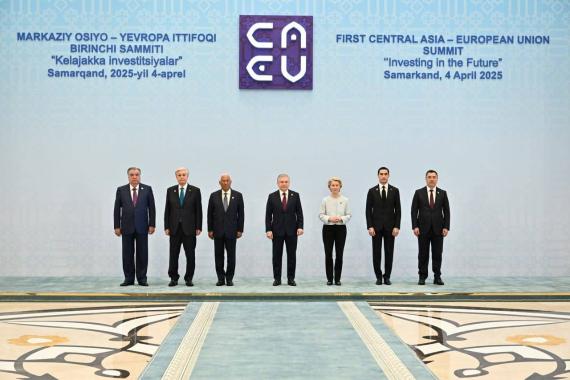Country Reports
Short political reports of the KAS offices abroad
The Konrad-Adenauer-Stiftung is a political foundation. Our offices abroad are in charge of over 200 projects in more than 120 countries. The country reports offer current analyses, exclusive evaluations, background information and forecasts - provided by our international staff.
Event Reports
The Konrad-Adenauer-Stiftung, its educational institutions, centres and foreign offices, offer several thousand events on various subjects each year. We provide up to date and exclusive reports on selected conferences, events and symposia at www.kas.de. In addition to a summary of the contents, you can also find additional material such as pictures, speeches, videos or audio clips.
European Union Climate and Energy
Prospects of Cooperation with (Re)emerging Powers
“European Union Climate and Energy” is a section with a series of reports and other publications designed to provide insight into the EU’s ambitions in the field of climate and energy policy development. Each publication in this series focuses on the EU’s global engagement in a clean transition or on how partner countries’ climate and energy ambitions relate to the EU. This series aims to provide a comprehensive understanding of the EU’s engagement strategies in the field of sustainable energy cooperation, climate change adaptation and mitigation as well as its partnership policies in the field of climate and energy.
Global Europe Illustrated
Spotlights on the EU´s engagement with the world
“Global Europe Illustrated” is a section with a series of published maps designed to provide an insight into the EU's foreign policy ambitions in various regions. Each thematic map in the series focuses on the EU's global engagement in the context of EU election observation missions, global gateway projects and bilateral and multilateral EU summits and ministerial meetings with participating partner countries. In addition, each map is accompanied by a brief political analysis that provides nuanced views on what the map says about the EU's foreign policy objectives in the respective region and how these efforts are perceived. This combination of visual representation and analytical commentary provides a comprehensive understanding of the EU's engagement strategies and their impact on regional political realities.












